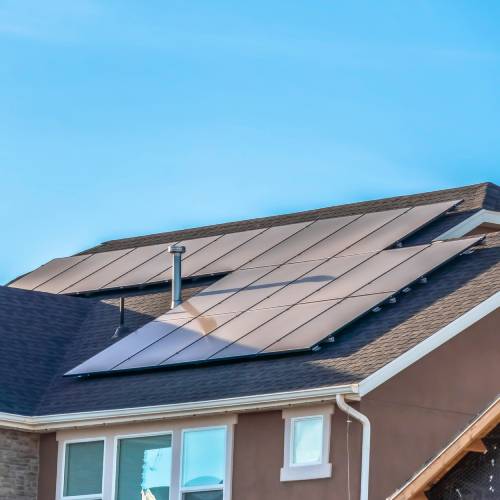Switching to solar energy is a bright idea for both your wallet and the environment. But with great power comes great responsibility.
Homeowners with solar panels must meticulously protect their investment by following specific safety guidelines. You can continue reading to gain insights to keep your setup running smoothly.
Never Walking on Solar Panels
At times, you might want to clean up the panels and conduct maintenance yourself. While it might feel tempting to step on those shiny new additions, a key safety rule is to never walk on the surface!
This action causes severe damage, including cracking and shattering the glass and harming the cells that convert sunlight into energy. If you need to access your roof, always take the path least likely to cross over your solar panels. Use walkways for rooftop tasks or contact a professional to avoid any mishaps.
Scheduling Regular Maintenance
To maximize the ROI of home improvement projects, you need to take great care of your solar panel system. Just like your car, your solar panels need regular checkups.
Scheduling professional maintenance at least once a year ensures that your solar system stays clean, safe, and fully functional. Certified technicians clean the panels, check for wear and tear, and examine the electrical components.
Skipping these checkups leads to dirt and debris buildup that reduces the panels’ energy output. Plus, it could pose electrical hazards if not properly cared for.
Establishing a Solar Labeling System
Labeling may not sound like the most exciting task. When the solar system doesn’t contain components, such as the disconnect switch, maintenance and repair technicians are at risk.
That’s why it’s crucial to avoid the common solar system labeling mistakes. Clear, durable labels can prevent confusion during crucial moments, ensuring the safety of everyone involved.
Make sure these labels are visible and legible to anyone who might need to interact with your solar system. Regular technicians and emergency technicians will have all the information needed to care for the system.
Installing a Backup Power System
Solar power isn’t infallible. Installing a backup power system, such as a battery storage unit, ensures you have power even when the sun isn’t shining or during a blackout. This backup system can store excess energy produced during sunny days and release it when needed, providing a reliable power source regardless of external conditions.
Investing in a backup system adds an extra layer of security and peace of mind. Plus, it reduces your dependence on the grid, making your home even more self-sufficient and eco-friendly.
Solar panels may look like they are just exterior accessories, but they’re highly powerful electrical devices. Unless you’re an experienced technician, you must act with care around them. Therefore, homeowners eager to get the most out of their solar panels must follow these safety guidelines closely. You’ll establish an environment where everyone involved always remains protected.

